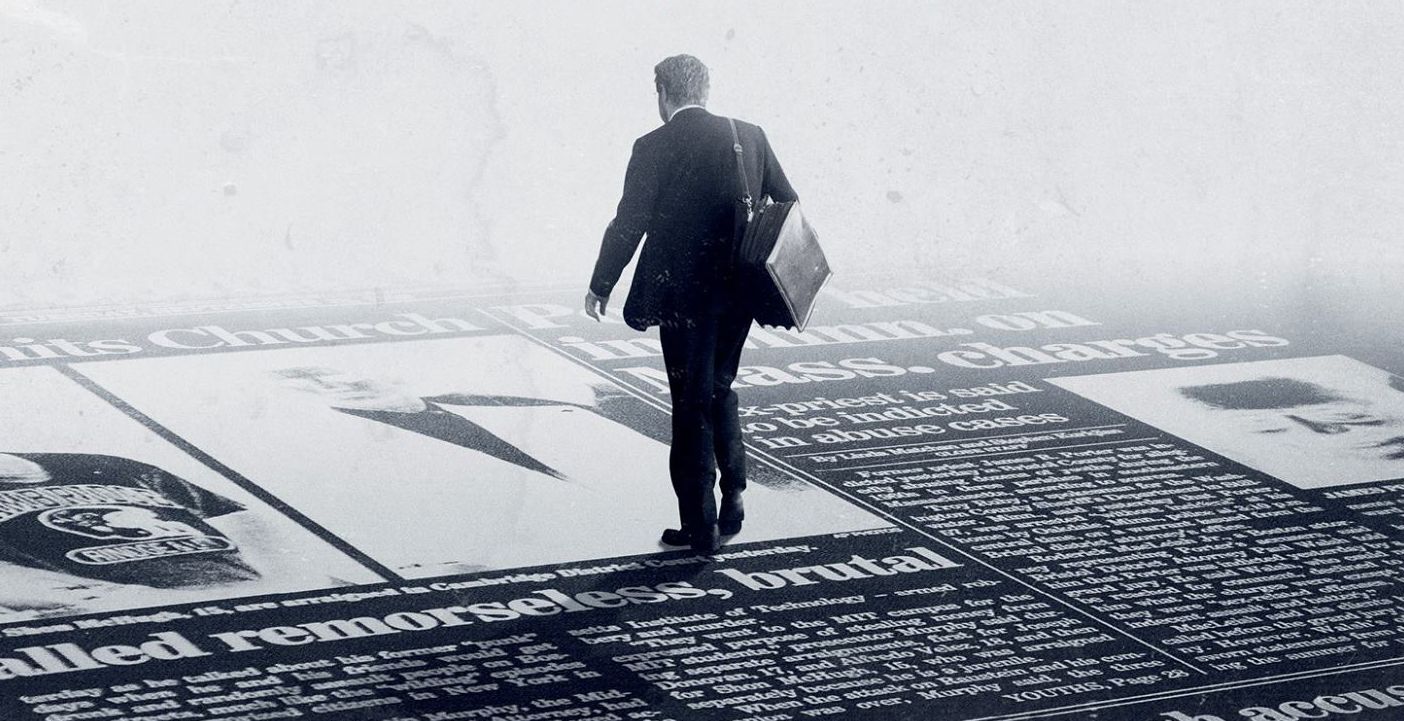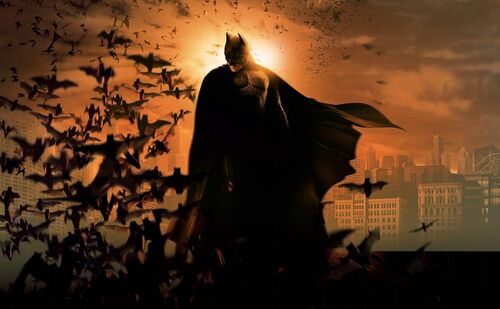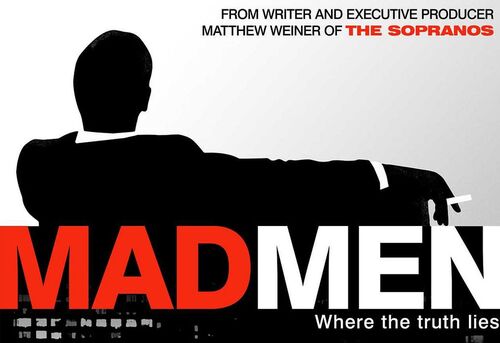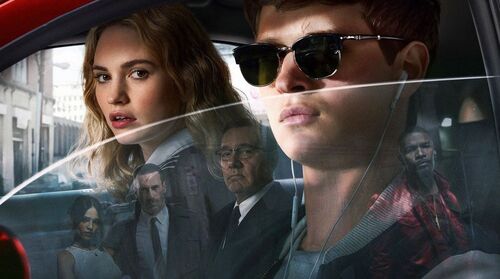
Spotlight (2015) Film Review
 A film of this calibre exists at an arms length of its colleagues, propelled by its subject. If you go onto the website for the Boston Globe, you'll find a page dedicated to the easy navigation of the paper's coverage from 2002 of the Catholic church scandal. But Spotlight achieves more than just raising further awareness for an issue that most of us knew at least a little about (shades of The Big Short); it also changes some of that perspective many of us share with regards to the importance of, and need for, good journalism.
A film of this calibre exists at an arms length of its colleagues, propelled by its subject. If you go onto the website for the Boston Globe, you'll find a page dedicated to the easy navigation of the paper's coverage from 2002 of the Catholic church scandal. But Spotlight achieves more than just raising further awareness for an issue that most of us knew at least a little about (shades of The Big Short); it also changes some of that perspective many of us share with regards to the importance of, and need for, good journalism.
Many of the films of the past few months, arguably the best that 2015 had to offer (or not arguably at all), have pitted their characters against a conflict that's much larger than each individual character, and again much like The Big Short, Spotlight deals with an 'enemy' that you can't really see. Who do you place the blame on, when the problems date back years and years, folded in the creases of extensive cover-ups?
The investigative journalists tasked with uncovering the scandal are our vessels into a world of deceit and distrust, and it'll certainly make you distrust the system as a whole. What little tension that exists between the four main characters themselves is made up for by the tension in the film's very concept, which is made into a living, breathing monster, particularly through the various interviews with the victims of these Catholic priests. These interviews hit disturbing notes in our minds, and force us to stay with the film, demanding our attention as it navigates the ever enlarging scope of the entire plot.
One particular scene is far less a light bulb moment than a bubble-bursting realisation. The four journalists sit around the same desk, listening to a man we never see in person, who's been investigating the conduct of these priests for nearly three decades. As he tells the journalists what he knows about the extent of this conduct, the camera moves backwards. The characters begin taking up less and less space in the lens. The background is spacial. All of a sudden, the problem becomes so much bigger, the task becomes so much harder. This one sequence perfectly exemplifies the very concept of tackling the system, and the rotting at the center of this film very much runs deeper than any of the journalists could have imagined. It's a swamp full of lies and corruption.
What's lacking in tension between the characters is never an issue, though the at times lack of difficulty in finding answers makes the film feel as though it's basic trial and error. It's a testament to good journalism, but not quite good suspense. The film is astoundingly accurate, to a fault but not a fault worth diminishing its deep commitment to reaching a larger audience with such a sensitive topic. Michael Keaton, Rachel McAdams, Mark Ruffalo and, to a lesser extent, Brian d'Arcy James all put in astoundingly real performances, with nuanced differences to distinguish them from one another. Ruffalo's Michael Rendez is the most brash and hot-headed, or rather appearing more so with his lead-by-actions approach and deep, outwardly emotional connection to the story.
McAdams as Sacha Pfeiffer doesn't like what she sees, what she finds, but her stoic exterior finds a way to angle in. Exposing this thing is her top priority, a priority they all share. The topic and the plot are top priority here, but its ensemble is never sacrificed for the sake of it, thankfully. Keaton backs up his turn in Birdman with another complex role, this time inhabiting a man who says a lot with very little, and provides one of the only tense moments within the group (though as a passive recipient). John Slattery and Liev Schreiber round out the ensemble as superiors to whom the Spotlight team must answer, but they are again decent folk just doing their job. What aids in avoiding these characters feeling stale and dull is the fact that we're given integral pieces of information about them, in such infrequent and minor doses that it's clear that, while they aren't the sole focus (this isn't a profile piece), they are people. They each have significant facets of their personality or lives that distinguish them from one another.
Early on Schreiber's character, Mark Baron, the new chief editor for the paper, seems designed as an instigator of conflict, remarking that Spotlight perhaps takes too long to do their job when timeliness of stories is becoming a priority, but the thread is never again picked up. What does work is the film's insertion of the 9/11 tragedy, which at first feels like a shoehorn (justified by its truth) but briefly in the second act becomes an obstacle that gets in the way of the team's investigation. Writing the event into the script due to its commitment to accuracy could have eventuated in pushing the film into a corner, but it navigates that particular angle superbly.
The lack of victory at the film's climax and conclusion reflects the somber events that precede them. There's never any satisfaction or value, on a personal level, of uncovering a story like this. It is a necessity, it's what has to happen, and the truth certainly does hurt. It hurts a lot people, making Sacha's personal experience with the unveiling of the news particularly poignant. Rendez remarks that he had been holding onto the idea of returning to church some day. But that crushing feeling, that light being put out, is something we can all relate to.
Throughout the film, we're introduced to, and often returned to, two lawyers, both very different from one another, played by Stanley Tucci and Billy Crudup. We're given very few perspectives from the other side, and Crudup's Eric MacLeish is about as close as we get, a man who cannot, or will not, say much, and so transitions from a source to an obstacle. And yet he reveals something that proves to be true. That the Globes own team once had access to this story, years prior, is an important piece of information. It adds to the entire feeling and the themes the film plays off. Where does this end, but more importantly, where does it start? How deep does it go? Why isn't anybody talking about this?
Boston isn't a massive place, and the film wants you to know that. Being foreign to it, a vibe is established, in distance everybody is close. Matty Carol discovers a priest who lives right around the corner from him. He proceeds to put a note on the fridge, warning the kids to stay away from that house. Sacha's grandmother is a devoted Catholic, with whom Sacha often goes to church (until she no longer can). The neighbourhood's targeted by the priests are often low income. They target the poor. The psychology of the entire thing is as sickening as the physicality of it. Maybe the film manipulates us, blind to the locale, into believing Boston is smaller than it truly is. If so, it's emphatic of the manipulation these men practiced during their life-long term, accompanief by a vow of celibacy that makes the entire twisted premise that much worse.
But the film is not anti-religion. It treats its material seriously, but it also treats faith seriously. It gives religion its place. It actually matters. In lesser hands, the church could have very easily been treated as the other, as the villain in and of itself. "My faith is eternal. I try to separate the two," proclaims one character. Spotlight treats its targets appropriately as villains, an example of which is when Sacha speaks with a priest who believes his conduct is somewhat normal. "You have to understand. I never enjoyed doing it." It's these dark, frightening moments that pit these men as less than human, but also narrow our eyes at the system. But, just as that character states, faith and the eternal is treated with respect, while the immediacy and currency of the church's conduct is seen as the evil it truly is.
The film tackles content that isn't naturally ripe for visual storytelling. The idea that a team of journalists with their heads over their desks is compelling can be considered absurd, and oft times a film fails to engross an audience on similar grounds. In Spotlight, every discovery matters. Every phone call and every page-flipping search through the history books has a certain weight, and this weight makes Spotlight relevant. But more than relevant, it makes it essential. It never preaches, nor pretends it has an agenda. It is a dramatic, compelling look at what happened, and how it happened. It's very simple, told very sternly, and it treats its events seriously. It's an important example of journalism as an integral part of our society.


